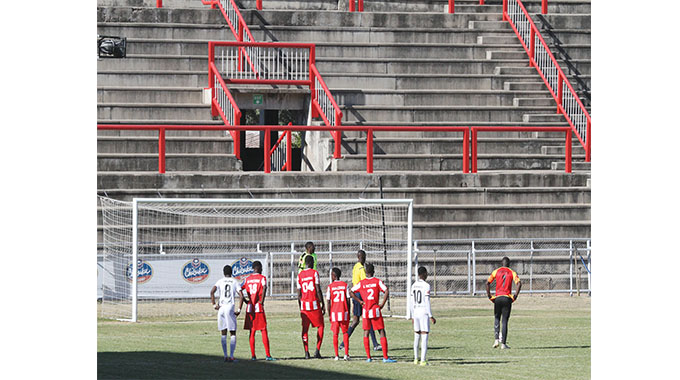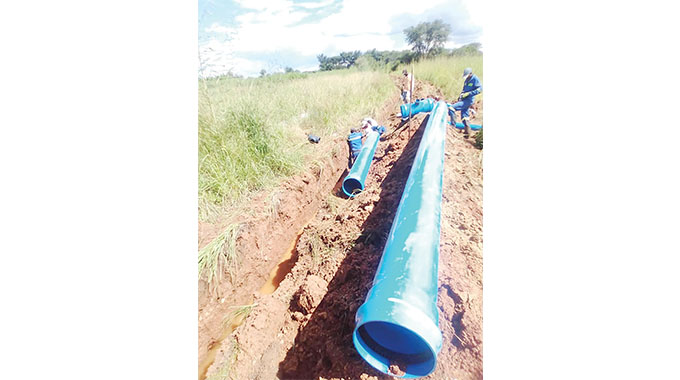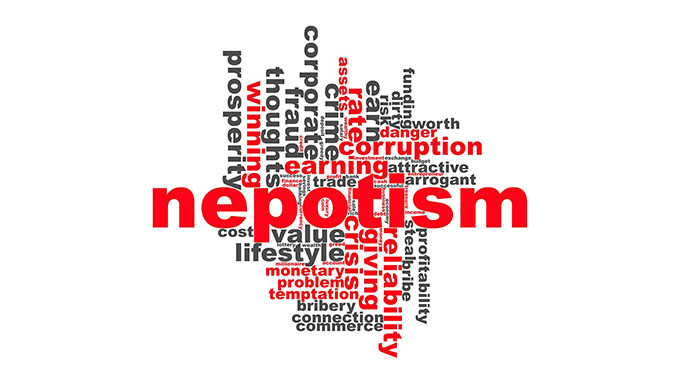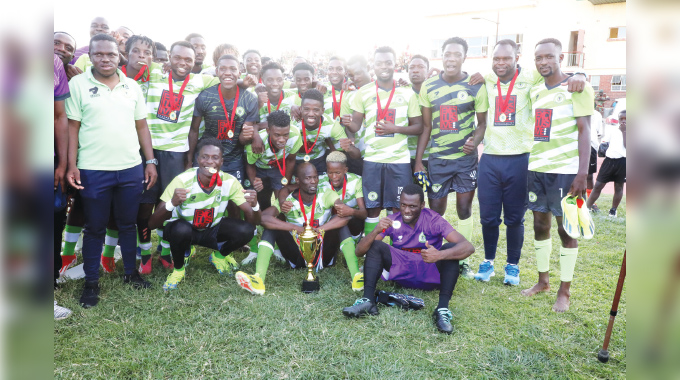Playing without fans; clubs feel the pinch

Ricky Zililo, Senior Sports Reporter
THE resumption of domestic football brought relief to Premier Soccer League players, whose careers had been forcibly put on hold by a surge in Covid-19 infections that obliged Government to impose a lockdown and slap a ban on all sporting activity.
Most local players’ dreams of catching the eye of foreign clubs in better paying leagues went up in smoke when the entire 2020 season was canned and they spent the whole without playing competitive football.
Only former Highlanders’ striker Prince Dube was lucky enough to be snapped up by Tanzanian side Azam FC without kicking a ball last year, while Tanzanian champions Simba Sports Club swooped on striker Perfect Chikwende at the beginning of this year after watching him dazzle for FC Platinum in the Caf Champions League group stage and mini-league phase.
The football gods also smiled on ex-Manica Diamonds midfielder Last Jesi, who landed a deal with Sudanese giants Al-Hilal last year.
Aggressive Highlanders’ central defender Peter Muduhwa had a bitter-sweet experience after sealing a six-month loan deal with Simba SC after Zimbabwe’s dismal performance in the African Nations Championship (Chan) in January, with the option of a permanent deal should he impress.
Unfortunately, Muduhwa was a victim of boardroom politics, involving agents, at the Tanzanian champions and deal was terminated halfway through.
The defender returned to his parent club Bosso, but remains on the sidelines since his international transfer certificate cannot be issued before the transfer window opens next month.
These are isolated cases among the majority of players, whose careers hit still waters for a whole one-and-a-half years.
So, when sport was finally granted permission to resume in March, it was like a dream come true for players, whose livelihoods had been affected by the pandemic enforced lockdown.
Initially, there were doubts that competitive action would actually resume, as the Sports and Recreation Commission (SRC) traded barbs with Zifa over applications seeking permission to restart.
However, the dream became a reality when player registration was done, the format for the Chibuku Super Cup was released and kick-off date confirmed.
Matches kicked-off without fans and have continued to be played behind “closed doors”, with fans following proceedings on TV, live radio commentary and live streaming on their mobile devices.
Games in Harare, Bulawayo, Zvishavane and Mutare are being beamed by different companies, with Zimbabwe Television Network (ZTN) live streaming matches from the National Sports in Harare, while ZBC television and radio broadcast games from Mandava Stadium in Zvishavane, with Nation TV covering Barbourfields Stadium and Heart & Soul TV live streaming Sakubva Stadium matches.
As the Chibuku Super Cup rolls into its third week, clubs are beginning to feel the pinch of playing in empty stadia.
Most teams relied on gate takings to pay bonuses, but with the turnstiles locked, player unrest is simmering at certain teams.
There’s nothing that Zifa or PSL can do regarding fans’ attendance since the ban is a government directive aimed at helping arrest the spread of Covid-19.
Measures put in place by the government have been effective in protecting citizens from Covid-19 compared to other countries.
The pandemic has had an impact on the economy as a whole, with the sports industry among the hardest hit.
Very few local clubs have been able to maintain their players’ salary bills, while others are in dire need of assistance.
For example, Highlanders have been struggling to get a main sponsor since they parted ways with mobile network operator NetOne in April last year.
On Thursday, their players staged a sit-in and demanded that the executive gives them a tangible commitment to adjust their wages, and threatened not to fulfill their Chibuku Super Cup match with Bulawayo City tomorrow if their grievances are not heeded.
The players also demanded that winning bonuses be restored to augment their meagre salaries, but the club can’t afford that because its coffers are dry and has been relying on the benevolence of well-wishers.
Had fans been allowed entry in stadia, Highlanders would have managed to quell the sparks of their players’ despondencies, with gate takings help cushion their pay.
There have also been reports of player unrest brewing at Dynamos, another team that also relies on gate takings to pacify their squad.
A snap survey showed that clubs spend between US$3 500 and US$5 000 per week to prepare for matches, with zero returns.
Camping fees, according to clubs, range between US$2 000 and US$3 000, with Covid-19 tests for the whole team gobbling about US$5 000.
Ground rentals for a single session are said to be equivalent to US$80 and with clubs training between three to four days a week, local teams seem to be throwing money into a bottomless pit, as there is currently no way of recouping any expense.
Some Bulawayo clubs said they use about 150 litres of diesel to transport players to and from training sessions a week, and the only expense they are spared is paying match officials, who get up to US$500 combined for every game they handle.
As things stand, it seems it’s just a matter of time before clubs that heavily relied on gate takings are afflicted by widescale player unrest.
With Premiership games starting next month after the Chibuku Super Cup, clubs should brace for more costs from intercity travelling, allowances and camping expenses.
In 2019, Bulawayo teams paid between US$2 800 and US$3 500 in camping fees and meals for their trips to Harare.
These figures will increase this time around due to Covid-19 protocols that don’t allow players to share a room.
They spent about US$620 in allowances for a travelling delegation of 32, with each person pocketing US$20.
For fuel to and from Harare, Highlanders used about 320l, which cost US$320, but they will have to dig deeper since fuel prices now average US$1.26 per litre.
A trip to Kariba requires Bulawayo teams to camp for two nights, meaning accommodation will double to about US$5 000 and fuel required for their bus to and from will increase to 600l. — @ZililoR











Comments